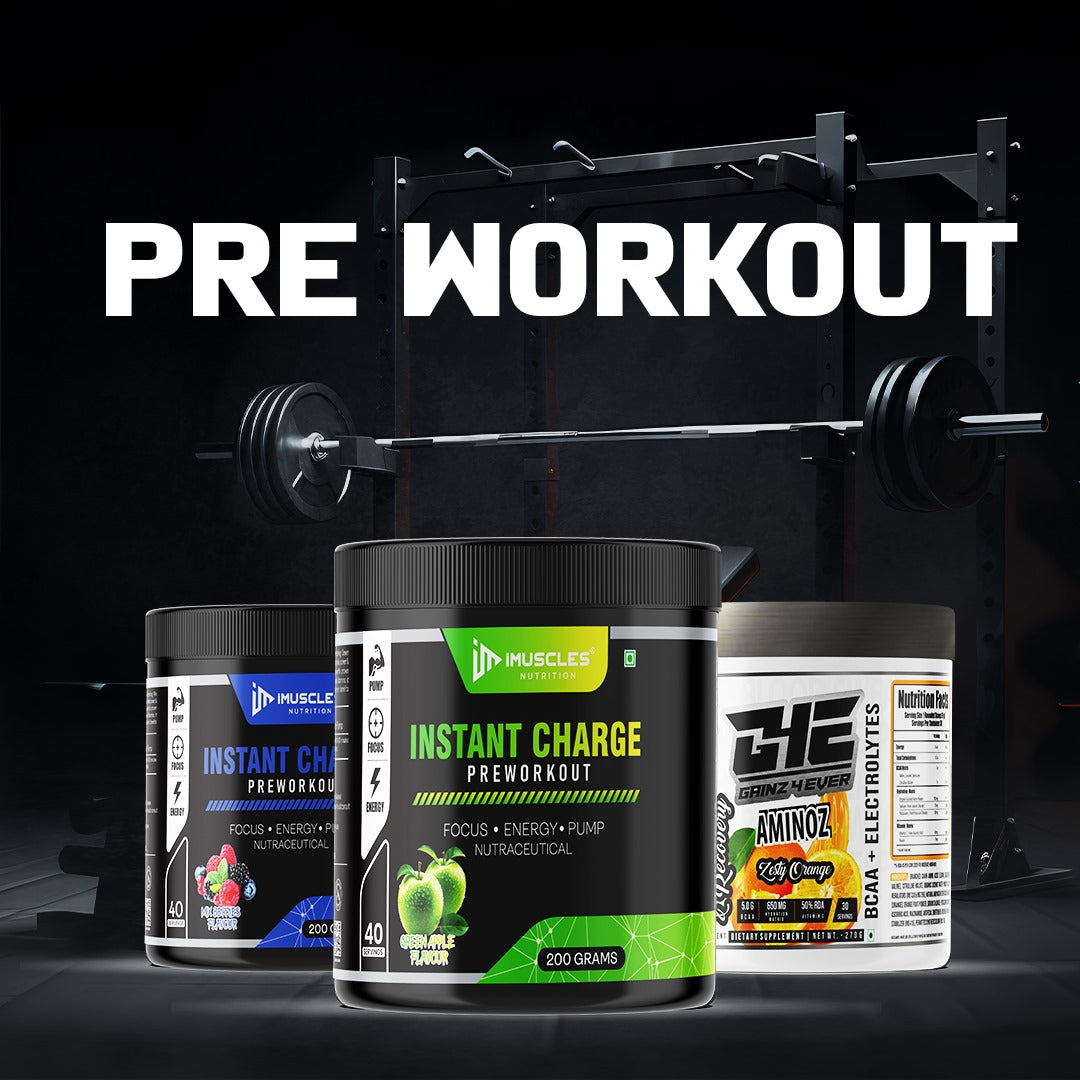
Can You Bulk Without Getting Fat? The Science Behind a Lean Bulk
iMuscles NutritionBulking has always been a hot topic among fitness enthusiasts. The ultimate goal? Building muscle mass without piling on unnecessary fat. But is it really possible to bulk without getting fat? The short answer is yes—but only if you approach it strategically.
This guide breaks down everything you need to know about lean bulking, including how much to eat, what to train, and lifestyle habits that prevent unwanted fat gain.
What Does “Bulking” Really Mean?
In fitness, bulking refers to eating in a calorie surplus to gain muscle mass. But here’s the catch:
- If you eat too much, you gain both muscle and fat.
- If you eat too little, you may not gain enough muscle.
The trick is finding the sweet spot—a small, controlled surplus that fuels muscle growth without excess fat storage.

The Science of Lean Bulking
Calorie Surplus and Muscle Protein Synthesis
Muscle growth happens when your body has enough calories and protein to repair and build muscle tissue. Studies show that a surplus of just 200–300 calories per day is enough for lean muscle growth without excessive fat gain.
The Role of Macronutrients
- Protein: 1.6–2.2 g per kg of body weight per day.
- Carbohydrates: 3–5 g per kg, to fuel workouts.
- Fats: 20–30% of total calories, supporting hormones like testosterone.
Genetics & Training Experience
- Beginners can gain muscle faster while minimizing fat gain.
- Advanced lifters may need more precise nutrition tracking.
Why Most People Get Fat While Bulking
- Overshooting Calories: Eating 600–800 calories above maintenance instead of 200–300.
- Too Many Processed Foods: Junk food calories increase fat storage.
- Lack of Strength Training Intensity: Without progressive overload, calories turn into fat, not muscle.
- Neglecting Cardio: Completely avoiding cardio slows metabolism and reduces calorie partitioning efficiency.

How to Bulk Without Getting Fat
Calculate Your Maintenance Calories
Use a calculator (TDEE) to find your maintenance calories. Add 250–300 calories for lean bulking. Example:
- Maintenance: 2500 kcal/day
- Lean Bulk Target: ~2800 kcal/day
Prioritize Protein
Protein prevents excess fat gain by supporting lean tissue growth. Stick with chicken, fish, lean beef, tofu, eggs, Greek yogurt, and legumes.
Choose Quality Carbs and Fats
Swap pizza and fries for brown rice, oats, potatoes, quinoa, olive oil, nuts, and avocado. These provide steady energy without spiking fat gain.
Train With Progressive Overload
You can’t bulk without strength training. Focus on:
- Compound lifts: Squats, deadlifts, bench press, pull-ups.
- Progressive overload: Increase weight, reps, or sets weekly.
- Consistency: 4–6 strength sessions per week.
Keep Cardio In Your Routine
Low to moderate cardio (2–3 sessions per week) helps with calorie partitioning, keeps fat in check, and supports heart health.
Track Your Progress
- Weigh yourself weekly. Aim for 0.25–0.5% body weight gain per week.
- Measure body composition. Use calipers, DEXA, or photos to ensure muscle gain is higher than fat gain.
Common Mistakes to Avoid
- Dirty Bulking: Eating pizza, burgers, and donuts to “hit calories” leads to fat gain.
- Neglecting Sleep: Poor sleep raises cortisol, promoting fat storage. Aim for 7–9 hours nightly.
- Ignoring Micronutrients: Vitamins and minerals are crucial for recovery and hormone balance.
- Impatience: Trying to bulk too fast usually results in fat gain. Lean bulk takes months, not weeks.
Example Lean Bulk Meal Plan (2800 Calories)
- Breakfast: Oats with whey protein, almond butter, and blueberries.
- Snack: Greek yogurt with honey and walnuts.
- Lunch: Grilled chicken, quinoa, broccoli, and olive oil.
- Snack: Protein shake + rice cakes with peanut butter.
- Dinner: Salmon, sweet potato, and asparagus.
- Evening Snack: Cottage cheese with chia seeds.
This plan prioritizes whole foods, protein, and balanced macros—perfect for a lean bulk.

Final Thoughts
So, can you bulk without getting fat? Absolutely—if you follow a lean, structured approach. The key lies in controlled calorie surplus, smart food choices, strength training, and consistent tracking.
Bulking without fat gain isn’t about eating endlessly; it’s about eating strategically. Done right, you’ll gain muscle while keeping your physique lean and athletic.
FAQs
Q1. How many calories should I eat to bulk without fat gain?
A surplus of 250–300 calories above maintenance is recommended for lean bulking.
Q2. Is cardio necessary while bulking?
Yes, light cardio 2–3 times per week improves heart health and helps prevent fat gain.
Q3. Can beginners bulk without fat?
Beginners often experience “newbie gains”, meaning they can build muscle and stay lean more easily compared to advanced lifters.
Q4. Should I track macros while bulking?
Yes, tracking macros (protein, carbs, fats) ensures you eat enough for muscle growth without overshooting into fat gain.
Q5. How fast should I gain weight when bulking?
Aim for 0.25–0.5% of your body weight per week. Faster weight gain usually leads to fat storage.

